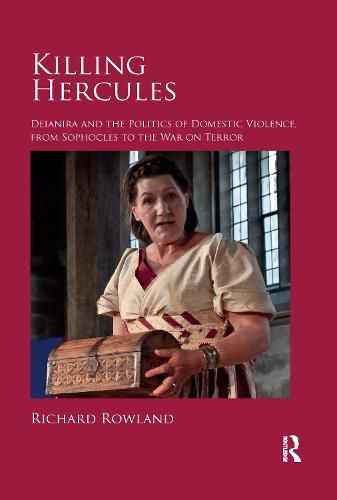Readings Newsletter
Become a Readings Member to make your shopping experience even easier.
Sign in or sign up for free!
You’re not far away from qualifying for FREE standard shipping within Australia
You’ve qualified for FREE standard shipping within Australia
The cart is loading…






This book offers an entirely new reception history of the myth of Hercules and his wife/killer Deianira. The book poses, and attempts to answer, two important and related questions. First, why have artists across two millennia felt compelled to revisit this particular myth to express anxieties about violence at both a global and domestic level? Secondly, from the moment that Sophocles disrupted a myth about the definitive exemplar of masculinity and martial prowess and turned it into a story about domestic abuse, through to a 2014 production of Handel’s Hercules that was set in the context of the ‘war on terror’, the reception history of this myth has been one of discontinuity and conflict; how and why does each culture reinvent this narrative to address its own concerns and discontents, and how does each generation speak to, qualify or annihilate the certainties of its predecessors in order to understand, contain or exonerate the aggression with which their governors - of state and of the household - so often enforce their authority, and the violence to which their nations, and their homes, are perennially vulnerable?
$9.00 standard shipping within Australia
FREE standard shipping within Australia for orders over $100.00
Express & International shipping calculated at checkout
Stock availability can be subject to change without notice. We recommend calling the shop or contacting our online team to check availability of low stock items. Please see our Shopping Online page for more details.
This book offers an entirely new reception history of the myth of Hercules and his wife/killer Deianira. The book poses, and attempts to answer, two important and related questions. First, why have artists across two millennia felt compelled to revisit this particular myth to express anxieties about violence at both a global and domestic level? Secondly, from the moment that Sophocles disrupted a myth about the definitive exemplar of masculinity and martial prowess and turned it into a story about domestic abuse, through to a 2014 production of Handel’s Hercules that was set in the context of the ‘war on terror’, the reception history of this myth has been one of discontinuity and conflict; how and why does each culture reinvent this narrative to address its own concerns and discontents, and how does each generation speak to, qualify or annihilate the certainties of its predecessors in order to understand, contain or exonerate the aggression with which their governors - of state and of the household - so often enforce their authority, and the violence to which their nations, and their homes, are perennially vulnerable?